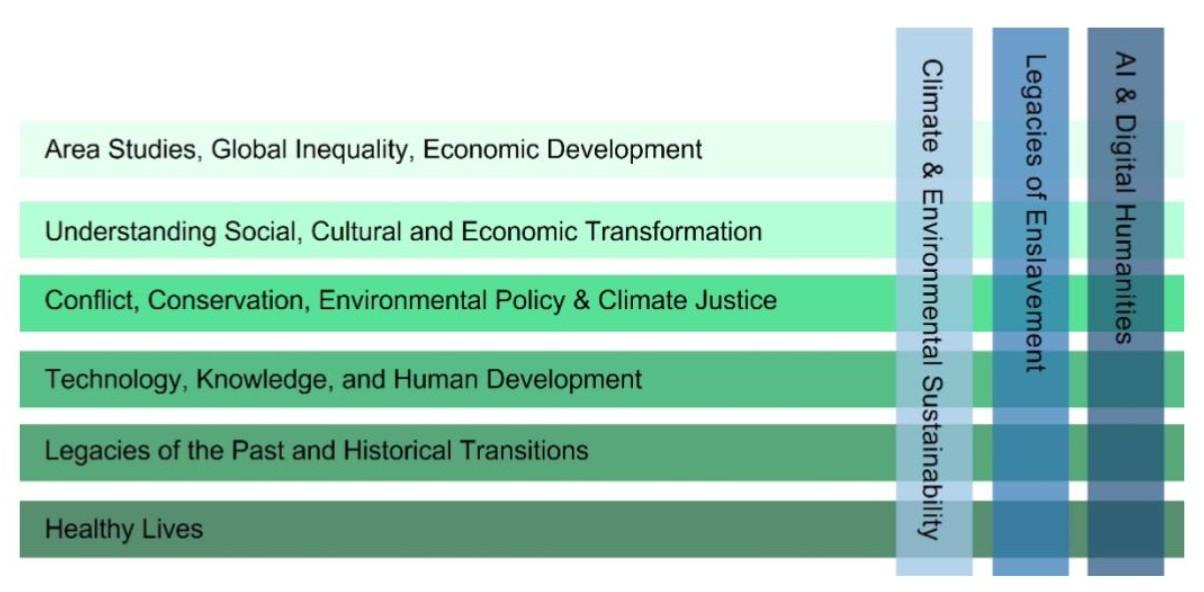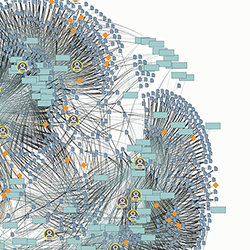
Transversal Research Themes
Three transversal research themes sit across the six thematic areas to further develop and engage research that cuts across Departments, Interdisciplinary Research Centres and Strategic Research Initiatives and Other Cross-School Initiatives.
-
Humanities, Social Sciences and AI
-
Climate and Environmental Sustainability
-
Legacies of Enslavement
-
Cambridge United States Studies Network (USN)
Ongoing research activity
In addition to these, Public Policy continues to be a priority for the School's research activity in a way that cross-cuts these themes. The Bennett Institute of Public Policy is convening this area, developing and encouraging links with researchers across the School and beyond.
The Consortium for the Global South (led by the Centre of African Studies, Centre of Development Studies, Centre of Latin American Studies, the Centre for Gender Studies and Centre of South Asian Studies), in promoting the interdisciplinary study of the Global South within and also outside the University, also cross-cuts the Framework themes and is an important strand to the School's increasing international research portfolio.
The Cambridge Heritage Research Centre (CHRC) based at the McDonald Institute of Archaeology brings together researchers from several disciplines and external partners, providing critical intersections with the Framework themes to understand how diverse institutions, political movements and communities recognise their identities, attribute value, contest rights claims and realise their political and economic strategies.
Also emerging strongly across the Framework themes is dialogue concerning the University's Legacies of Enslavement initiative. Humanities and social science researchers can contribute to and enable further productive and essential conversation and action around this.
While not exhaustive, this list of activities begins to highlight how existing networks in which HSS research features prominently speak to the deliberately capacious working titles of the Framework themes. The Framework provides another way to frame existing activities, explore connections between research agendas, present future directions and open up conversations.
Thematic Research Areas
The School of the Humanities and Social Sciences is establishing a suite of broad thematic groups designed to promote the School’s diverse research activity. This initiative aims to foster closer connections between researchers and across disciplines, offer improved avenues of communication and strengthen the environment for collaborative research.
Resulting from an initial consultation and a series of focus groups, six themes have emerged under the following working titles:
-
Area studies, global inequality and economic development
-
Social, cultural and economic transformations
-
Conflict, conservation, environmental policy and climate justice
-
Technology, knowledge, and human development
-
Legacies of the past or historical transitions
-
Healthy Lives
Join the Thematic Research Conversation






